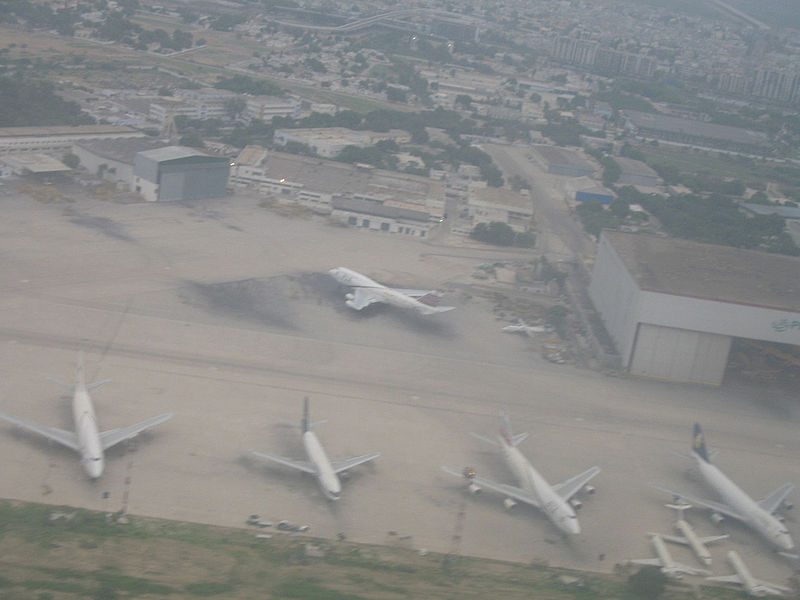Headline
Uzbek militant group claims Pakistan attack
ISLAMABAD — An Uzbek militant group operating in Pakistan’s northwest tribal areas says it played a role in the attack on the Karachi airport earlier this week, in a disturbing sign of the increased cooperation between militant groups in Pakistan.
The news came the same day that the U.S. broke its five-month hiatus on drone strikes with a strike in the Pakistan tribal areas that killed three militants, officials said.
SITE Intelligence Group, which monitors militant activity, reported the claim by the Islamic Movement of Uzbekistan on Wednesday, and it was also detailed on the group’s website.
“We would like to emphasize that this martyrdom operation was carried out as the revenge to the latest full-scale bombardments and night attacks with fighter jets by Pakistan Apostate Army,” the statement read.
Militants laid siege to the airport late Sunday in a five-hour attack that ended with 36 people dead including the ten attackers.
The attack, coming against a vital transportation hub in a city key to Pakistan’s economy, shocked the country. Gunmen on Tuesday then attacked a police training facility near the airport. No one was wounded in that incident, and the estimated two to three gunmen managed to escape but it compounded the sense that Pakistan is struggling to deal with its stubborn militancy problem.
The Pakistani Taliban initially claimed responsibility for the incident. A spokesman for the militant group said Wednesday that they had worked with the Uzbek group but did not give any details.
“Our brother organization, IMU, played role in the attack on the Karachi airport,” said a spokesman for the Pakistani Taliban, Shahidullah Shahid, in a telephone call to The Associated Press.
Pakistan’s northwest, particularly the North Waziristan tribal area which borders Afghanistan, is home to numerous militant groups who often work together, sharing fighters, money or expertise.
The IMU was formed in 1991 with an original goal to set up an Islamic state in the central Asian country of Uzbekistan. But it later broadened its ambitions to seeking an Islamic state across Central Asia.
The U.S. State Department designated the IMU as a foreign terrorist organization in 2000. The group’s leadership is believed to be based in North Waziristan, a part of Pakistan’s tribal regions where many militant groups are located, and it has a relationship with both the Afghan Taliban and the Pakistani Taliban, according to the State Department.
Michael Kugelman, Senior Program Associate for South and Southeast Asia, said the cooperation between the IMU and the Pakistani Taliban is not surprising considering the Pakistani Taliban’s history of cooperating with various militant groups to achieve its goals. For example, the Pakistani Taliban teamed up with al-Qaida in the 2009 suicide bombing of a CIA base in eastern Afghanistan’s Khost province. In fact, that ability to work with other militant groups is part of the reason the Pakistani Taliban has survived even in the face of military operations, American drone strikes and internal divisions.
“The Pakistani Taliban has very ferocious friends in Pakistan,” he said.
Calling the IMU a “legitimate threat,” Kugelman said it has maintained a considerable presence in Pakistan and Afghanistan in recent years and has been actively trying to establish a haven in Afghanistan, particularly around the Kunduz area in northeastern Afghanistan.
Meanwhile, two Pakistani intelligence officials said that an American drone fired two missiles at a militant facility in the North Waziristan tribal area near the Afghan border, killing at least three insurgents. The officials said they did not have information on who exactly was killed in the strike. They did not want to be identified because they were not authorized to speak to the media.
This marks the first drone strike by the CIA-led program in Pakistan since Christmas.
Due to stricter rules on the use of drones, diplomatic sensitivities and the changing nature of the al-Qaida threat, the number of drone strikes has dwindled.
Associated Press reporter Munir Ahmed in Islamabad contributed to this report.






















